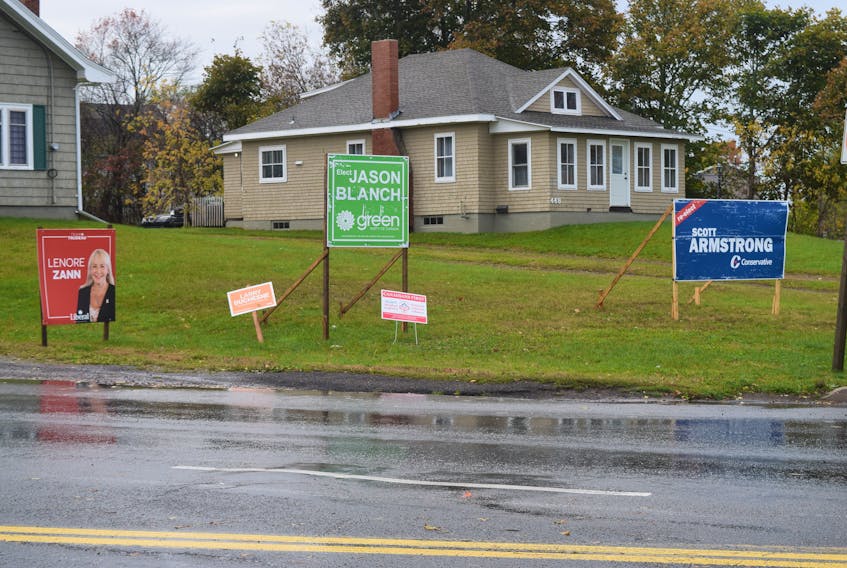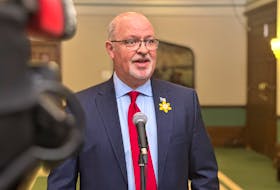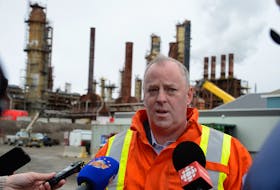TATAMAGOUCHE, N.S. — Concern about the climate crisis and strengthening democracy were some of the questions put to local election candidates by the North Shore Nova Scotia chapter of the Council of Canadians.
The council said in a news release that it recently requested the four “viable” candidates for the Cumberland-Colchester riding answer a brief questionnaire about such “priority” issues as the climate crisis, the health of Canadians, strengthening democracy and indigenous rights.
Responses were received from Lenore Zann (Liberal), Jason Blanch (Green Party) and Larry Duchesne (NDP). Conservative Party candidate Scott Armstrong did not respond, the release said.
Candidates were asked to keep their answers short.
On Strengthening Democracy:
If elected, what actions would you or your party take to ensure access to high-speed internet for all Canadians, including rural and indigenous citizens?
Duchesne – The NDP is committed to ensuring that all Canadians will have access to high-speed internet. We are also prepared to take on the cell phone and Internet companies to ensure fair prices in line with the global average (which is lower).
Blanch – The Green Party supports the federal government's connectivity strategy. Additionally, the Green Party proposes to offer public high-speed Internet access in post offices, particularly in under-serviced rural and remote communities. We will strike a parliamentary committee to examine 5G technology, including security issues and impacts on weather forecasting, and make recommendations on how and if Canada should proceed.
Zann – Through the Connect to Innovate program we will continue to address the unique connectivity challenges faced by rural and remote communities. In Budget 2019, we committed to ensuring every single household and business in Canada has access to high-speed internet of 50 Mbps download and 10 Mbps upload, by 2030.
On the Climate Crisis:
If elected, does your party commit to ending all taxpayer support for the fossil fuel industry within the next term (estimated by Environmental Defence Canada to be $3.3 billion annually)? How will you or your party achieve this?
Zann – The Liberal government’s made the most progress in Canadian history when it comes to protecting the environment and fighting climate change. We invested across sectors – and across the country – to get Canada on track, including putting a price on pollution. The transition from fossil fuels must happen, and we’re committed to doing it respectfully, for all Canadians.
Blanch – To achieve this, the government of Canada must utilize every tool in the federal toolkit, including regulations, public spending, and pollution pricing. We will establish a cross-party inner cabinet to limit the destructive impact of partisan politics which has thwarted strong climate action for two decades.
Duchesne – Jagmeet Singh and the NDP have promised to end government subsidies to the fossil fuel industry.
Health of Canadians:
If elected, will your party introduce a publicly funded, universal drug coverage
program?
Blanch – Green Party is the first party to advocate for Universal Pharmacare in Canada. All other
industrial countries with universal healthcare have universal pharmacare, which is estimated
to save the Canadians between $5 billion and $11 billion a year. Currently, an estimated 2 million
Canadians cannot afford the medication they are prescribed.
Zann – No Canadian should have to choose between paying for prescription drugs and putting food on the table. That’s why the Liberal government created an Advisory Council on the Implementation of National Pharmacare. The report produced by Dr. Hoskins and the advisory council is an important step in laying the foundation for a national pharmacare
program.
Duchesne – The NDP promises to extend health care to include a universal pharmacare program along
with programs for dental care and vision care.
The full survey and related responses can be accessed by logging onto: https://tinyurl.com/nscoc-survey .
The Council of Canadians describes itself as a non-partisan, leading social action organization with 60 chapters across the country, that advocates for clean water, fair trade, green energy, public health care, and a vibrant democracy.









